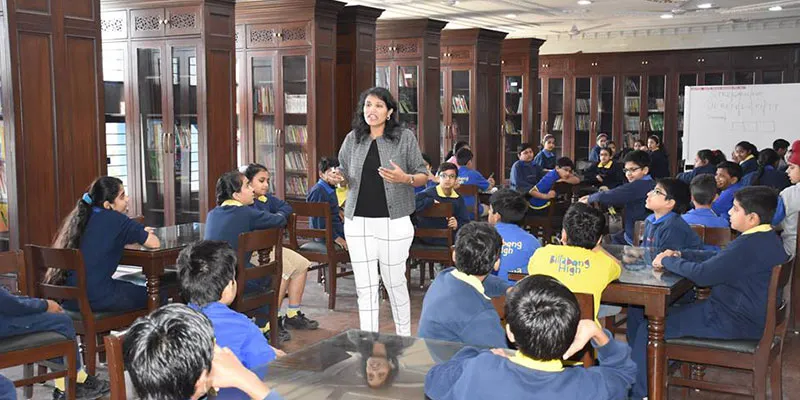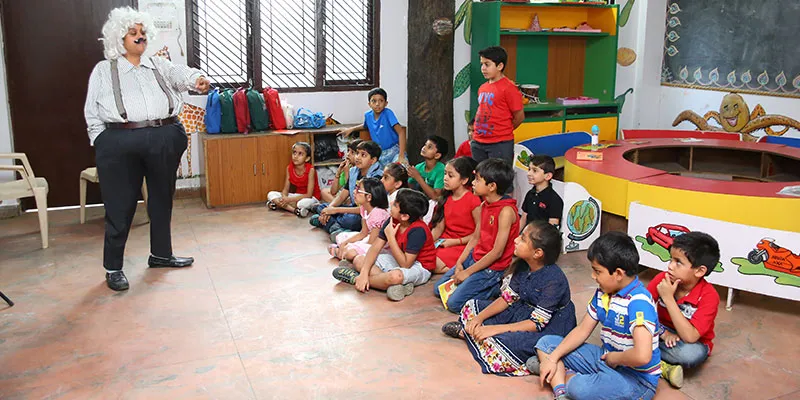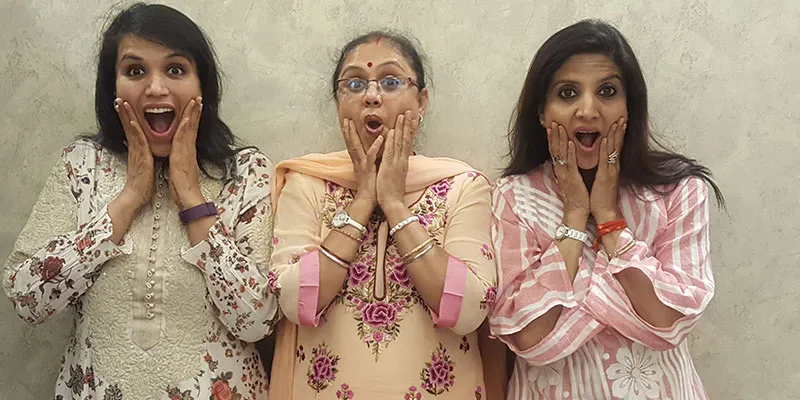This organisation is on a mission to break the TV habit with the reading habit: The tale of Stories and Beyond
Stories and Beyond works with the aim of breaking the TV habit with the reading habit, replacing ‘TV/internet time’ with ‘reading time’ among children aged between three and 15 years.

Lullabies and grandma stories existed for a reason. Stories speak to our hearts more naturally than any other medium. They have an ability to inspire us and communicate ideas, both big and small. However, the past few years have seen the art of reading slowly pushed into the background. Now, an organisation started by a bunch of passionate women aims at bringing reading back into fashion, with the sole purpose of getting children off their couches and television binges, making them read stories instead.
Stories and Beyond works with the aim of breaking the TV habit with the reading habit, replacing ‘TV/internet time’ with ‘reading time’ among children aged between three and 15 years. It reaches out to the children with award-winning books and classics with the sole objective of instilling good literature in their lives. Through this exercise, they wish to develop in the children of today life skills, better vocabulary, and creative writing.
“We read a wide variety of popular children’s books from around the world and elaborate on the character sketches, thereby increasing children’s vocabulary and imagination. The book reading is followed with debates and theatre scripts to enhance their public speaking skills,” shares Co-founder Nidhi Agrawal (36).
Nidhi, an MBA from IIM-C who grew up with a passion for reading, initiated the concept along with friends Amita Sarkari (52), a certified phonics teacher, and Rekha Samal (42), a certified storyteller. Founded in 2013 in Bhopal, Stories and Beyond has successfully engrossed 400 children in the act of reading so far, propelling them to read an average of 50 books.
Stories and Beyond started small, with 16 children in 2013, and they have grown to 146 children at their Bhopal centre. The organization has two centers in Bhopal and one center in Ranchi and have a team of eight mentors. “We don’t spend much on marketing; it’s mostly word-of-mouth and referrals. Our repeat subscriber rate is a robust 66 percent, which means 66 percent of Stories and Beyond pupils come back to us for our next quarter programmes,” says Amita.
“The initial years were a lot of effort in terms of content generation, activity planning, and mentor training. Now, we have our model well in place, and our audience has grown bigger. Our Bhopal centre alone generated a revenue of around Rs 17 lakh in 2016, and we project a revenue of Rs 35 lakh from this centre in 2017. We have received interest in franchises from Bhopal, Indore, and Raipur. We are, therefore, in advanced stages of copyrighting and trademarking our content and workbooks,” says Rekha.

How’s this activity different from the book-reading and library sessions modern schools have? “Unlike such sessions held in schools, Stories and Beyond teaches literature to children using modern and structured methods. We give a deep insight about the characters, plot, and themes of the novel. In case we feel that the child does not cope in a group class for reading, we call them for add-on classes with fewer kids (where the teacher-student ratio is 1:4), and focus on their reading faster and comprehending better. Once the child is brought to the optimum level, he is again put in the collective class, with a teacher-student ratio of 1:12,” says Amita.
“We know how to make reading fun and enjoyable for kids. Our certified storytellers, phonics experts, and mentors nurture the love of books in children at an early stage with our tailor-made techniques, which combine language skills and interactive activities,” informs Rekha.
In the world of information technology, with information literally at our fingertips, and children able to read on devices such as Kindle and iPad, what was the pain point these three sought to address by bringing children to book-reading?
“Most children in India feel the need for reading books beyond the curriculum only in the final year of school or college, when they are preparing for SAT, CAT, GMAT, or GRE. There is a long list of vocabulary and novels they are expected to read in order to crack these tests. But by then, they end up reading all this only to crack the exam, and their language skill development is exhausted. Language learning requires years of intensive exposure to well-selected literature,” Nidhi insists.
Understanding lexile levels
Good literature is expensive, and is often not so easily available in Tier-II cities like Bhopal or Ujjain. In addition, parents have limited exposure to buying the books with the right literary content and lexile level for their children.
“Most parents aren’t aware of the lexile levels, which are the reading levels set all around the globe. Parents would typically buy books of cartoon characters without ever realising the lexile level of the book, which is important if the child is to really take an interest in reading,” says Amita.

Stories and Beyond thus set off with the mission of inculcating awareness about lexile levels among parents, to help them truly understand the category of books their child would love and enjoy.
How are the books selected? “We have carried out intensive research, because while there are a horde of publication houses selling the same title of books, not all are appropriate for the child’s level. Also, the level of editing varies from publication to publication,” she points out.
“I have two sons, aged nine and eleven, and both have read more than 50 books in a span of four years ever since they started attending the Stories and Beyond programme. They look forward to the classes, and always return with a thoughtful mind and a smiling heart,” testifies 36-year-old Taruna Batija.
Stories and Beyond is bootstrapped, and runs an annual programme in Madhya Pradesh and Jharkhand. They charge Rs 11,000/- per annum for the same. , . “We have now registered for copyrights and trademarks, and are set to franchise our model with necessary training for the mentors at different centres,” says Nidhi.
Utilising the power of stories
There are organisations such as Helen O Grady International Speech and Drama Academy, Kathalaya, and Ever-after that are using storytelling as a technique to teach various skills to children. “I see fewer who weave award-winning books and classics and make an interactive accelerated reading programme. Our copyrighted Companion workbooks are structured and ensure accurate execution for every book we read in the class,” explains Nidhi.
What’s the exact space where they are making a dent? “Our market is every home where a child is not motivated enough to read, and our target is every parent who is willing to invest in their child’s future. We hope to eventually expand through our franchises to all cities in India. We offer a simple franchise model, and invite well-read people who wish to work from home or part-time to join in. The criterion to be a part of our team is to have a love for books and a love for children,” says Amita.
Stories and Beyond has plans of setting up more franchises, partnering with publication houses, and starting online engagement activities in 2017. “We are also particular about appointing female franchise owners since this is also an empowerment initiative to encourage women readers and enthusiasts all over India to join our cause,” asserts Nidhi.
The organisation wishes that parents in Tier-II cities stop focusing on fads and spending lakhs of rupees on tuitions and classes, and instead start laying emphasis on developing basic skills like reading habits among children.







